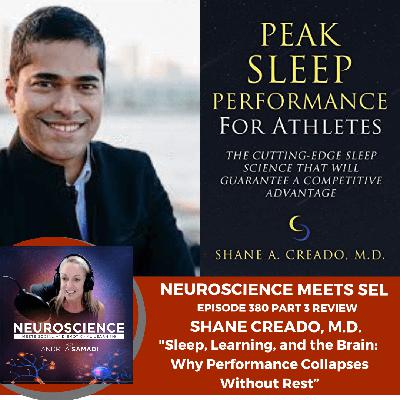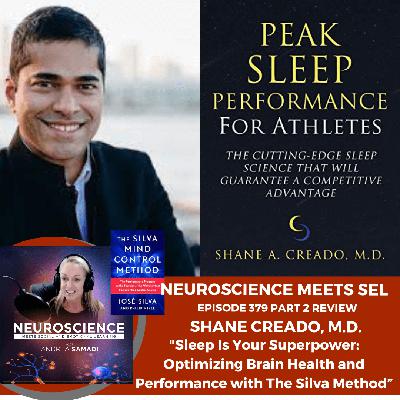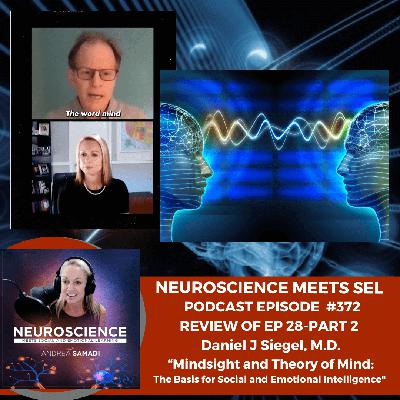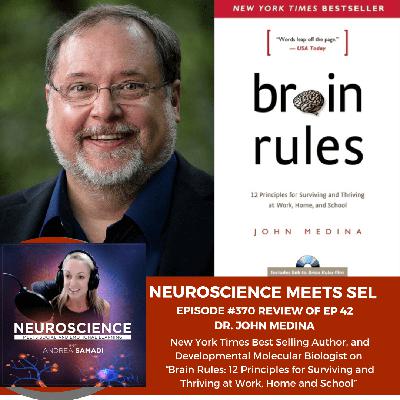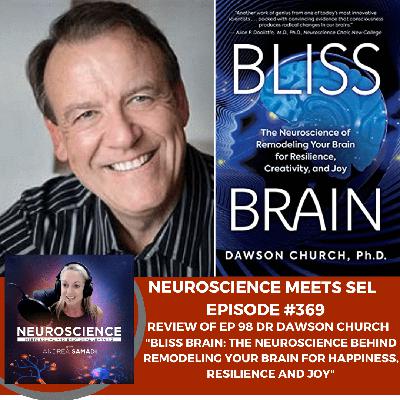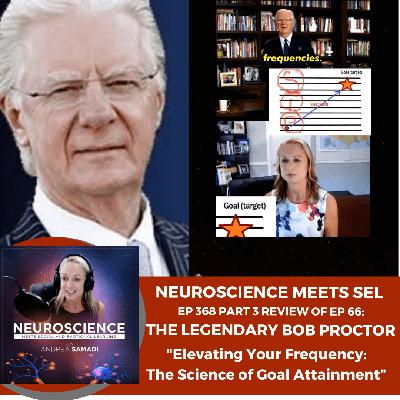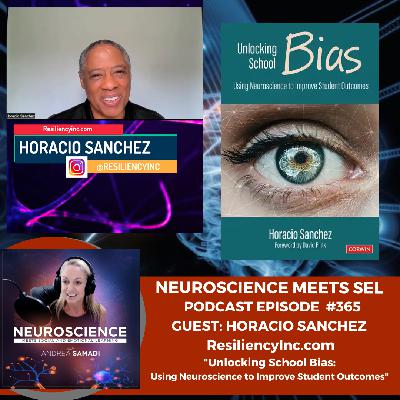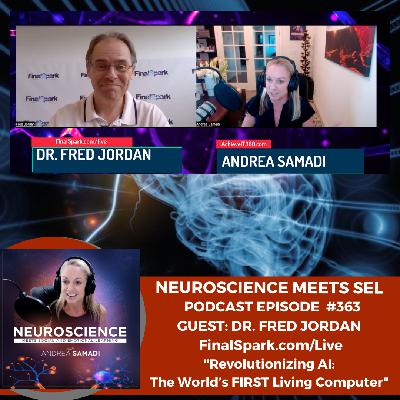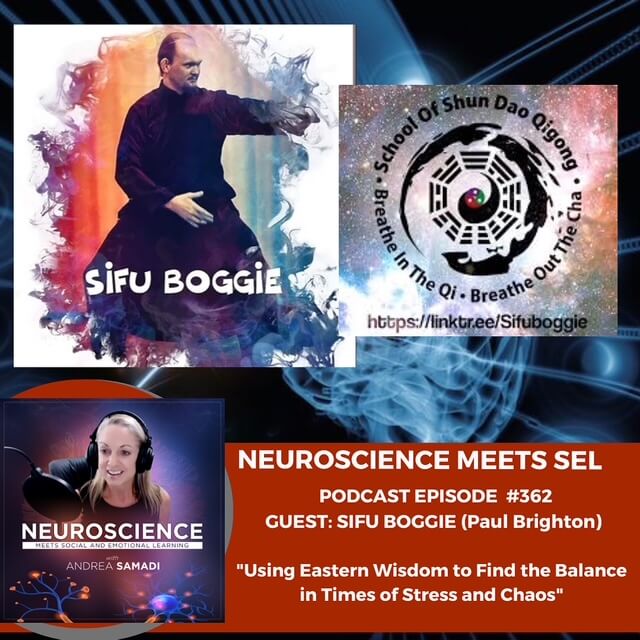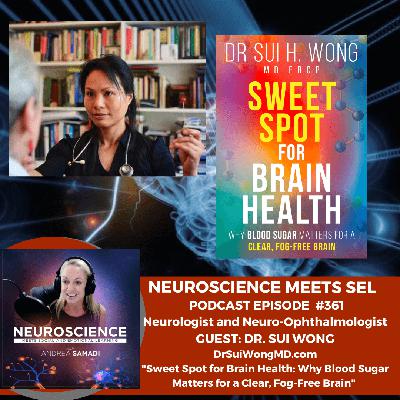Understanding Your Six Higher Faculties — Lessons from Bob Proctor- PART 2
Description
Season 14, Episode 367 revisits Episode 66 with the late Bob Proctor, distilling two powerful clips about why people get stuck and how to move forward. Andrea Samadi connects Proctor’s timeless success principles — the six higher faculties of the mind (reason, intuition, perception, will, memory, imagination) and the idea that goals are set to grow — with modern neuroscience and practical steps for personal and professional growth.
Brief, actionable takeaways: choose one mental faculty to develop at a time, embrace growth-focused goals even when outcomes change, and seek specialized knowledge to organize and direct learning into deliberate plans of action.
Welcome back to SEASON 14 of The Neuroscience Meets Social and Emotional Learning Podcast, where we connect the science-based evidence behind social and emotional learning and emotional intelligence training for improved well-being, achievement, productivity and results—using what I saw as the missing link (since we weren’t taught this when we were growing up in school), the application of practical neuroscience.
I’m Andrea Samadi, and seven years ago, launched this podcast with a question I had never truly asked myself before: (and that is) If productivity and results matter to us—and they do now more than ever—how exactly are we using our brain to make them happen?
Most of us were never taught how to apply neuroscience to improve productivity, results, or well-being. About a decade ago, I became fascinated by the mind-brain-results connection—and how science can be applied to our everyday lives.
That’s why I’ve made it my mission to bring you the world’s top experts—so together, we can explore the intersection of science and social-emotional learning. We’ll break down complex ideas and turn them into practical strategies we can use every day for predictable, science-backed results.
As we kick off Season 14, I’ve been revisiting past episodes and reflecting on the incredible insights our guests have shared since we first launched in 2019. I mentioned last week that this reflection started when a young filmmaker, Vishal Sharma[i], reached out to me and offered to create YouTube Shorts[ii] from past interviews. When I saw his first example, something clicked. As I reviewed older episodes, I realized I had only scratched the surface of the lessons within each interview.
So as we dive into this review of past conversations, know that this review isn’t just for you—it’s for me as well. I’ve learned that slowing down helps us to uncover even more wisdom, and I’m excited for us to walk this path together.
For today’s Episode 367, we’re going back to Episode 66[iii] with the late Bob Proctor—the first person who challenged me to think. Last week we covered our first YouTube Short[iv] where we picked out three important nuggets of wisdom that I had missed until re-listening to this episode.
We covered in PART 1:
✔ Top Lesson from Episode 66 – Where we refined the question: “What do you really want to do with your life?” hoping that midway through 2025, we can refine our goals, and see if we are on track.
✔ Sage Advice Tip #1: “We have been given the mental faculties to create our own environment. “We explored how to go beyond our five senses and tap into the six higher faculties of our mind (further developing our reason, intuition, perception, will, memory and imagination.”
✔ Sage Advice Tip #2: “There’s only one mind.”
We looked at how our actions matter because we are all deeply connected.
✔ Sage Advice Tip#3: “We are a soul—we don’t have one.”
We reflected on the perfection within each of us, and how this perfection continually drives us toward bigger and better possibilities.
Today, we are going to cover 2 short video clips and dive into the wisdom contained within each, making the connections with each nugget of wisdom learned. And since I’m always looking to connect the science to our learning, there are some age-old success principles we will cover today, that are proven to work time and time again. While science doesn’t call out the success principles exactly as we will cover them today, Stanford University neuroscientist and tenured professor of neurobiology, Dr. Andrew Huberman does discuss “the science of imagination and its impact on creativity and learning” on his recent podcast episode “The Science of Creativity: How to Enhance Creative Innovation.”[v] Keep an open mind, as we discover how we can rise to new levels of success by applying the timeless principles we explored in Episode 66.
For today’s EP 367-PART 2 of our review of EP 66, we will cover:
Sage Tip #1: In the first clip we learned that “If we want to improve our RESULTS, we must focus on the six faculties of our mind—reason, intuition, perception, will, memory, and imagination.”
The key is to choose one of these faculties and dedicate time to studying and applying it until you see real results from your deeper understanding. You could even spend an entire year on just one faculty, and it would be time well invested.
Sage Tip #2: In the second clip we learned that “Goals are not set to get; they are set to grow.” Sometimes goals don’t unfold the way we expect, and that’s okay—as long as we keep moving forward and growing. To do this, we must keep studying, learning about ourselves, clarifying what we truly want, and seeking specialized knowledge in our field from those who have gone before us.
VIDEO 1 Watch by Clicking Here
Click on the link in the show notes to watch video clip 1 where I asked the question “what are some of the common reasons why people don’t reach their full potential” as I’ve always wondered why many of us get stuck. It really has boggled my mind over the years why there is such a puzzle around reaching high levels of success and achievement. Myself included.
Bob replied with “well, the answer to that is pretty obvious. We were not taught anything about ourselves” and he went right back to how we were never taught how to live beyond our five senses, and most of us haven’t fully developed the six faculties of our mind that we went into on EP 294[vi] and he said that we let the outside world control us. That rang true to me. It’s a rare individual who moves forward, towards their goals, past the many obstacles they face. Something always seems to get in the way, and delay progress, but those who achieve these high levels of success, have become masters at moving forward, despite what they face.
Sage Tip #1: If we want to improve our RESULTS, we are going to have to narrow in on the six faculties of our mind (our reason, intuition, perception, will, memory and imagination). You can review the 6 faculties on EP 294[vii] where we covered each faculty, with examples on how to develop them. We could spend years working on each faculty, to really sharpen the saw.
I remember when I first found a book on how to develop my intuition (one of the 6 faculties of the mind). It was my early days of living in the US (after moving from Toronto to Arizona in 2001, sometime after September 11th had happened) and I was cleaning someone’s house (after the work I was doing in the seminar industry came to a fast halt without the ability for people to travel by air) I found work that brought me more money than I imagined possible. It was a humbling time, that’s for sure. I noticed this book on a book shelf and asked the owner if I could read her book, and bring it back when I returned. I remember she looked at me and said “keep it!” and took it off her book shelf. I must have given that book to someone else to read, (following her example) but I still have the next one I bought after that, called Developing Intuition by Shakti Gawain.[viii] Take your time learning these six intellectual factors. Each one, will serve you well once you learn how to use them, and developing these faculties would be one of the main differentiators that Bob mentioned separated those who achieved their goals, from those who did not.
The biggest lesson I learned from diving into my intuitive factor (from reading these books) was learning to trust myself with the insights that would flash on the screen of my mind, (as learned from The Silva Method EP 261),[ix] or listening to my body with what neuroscience calls interoception and finally, applying this intuition to my work life, something that 20 years ago, was not a concept ever spoken about in our corporate workplaces. I’ll never forget when Greg Link, who took the 7 Habits Book to great heights with the Covey Organization, mentioned this book on Intuition, on EP 207[x] on “Unleashing Greatness with Neuroscience, Trust and the 7 Habits.” If Gawain’s book on Intuition was on Greg Link’s book shelf, I think that’s enough to say it comes highly recommended.
To sharpen your saw on these higher faculties, go back and review EP 274, and make it a mission to work on one faculty at a time, until you are using each one, effectively, in your daily life. This will be time well spent.
VIDEO 2 Watch by Clicking Here Click on the link in the show notes to watch video clip 2.
✔ Sage Advice Tip #2: In this clip we learned that “Goals are set not to get, they are set to grow. And sometimes if the goals don’t work, that’s ok. As long as you keep going, and growing. The main thing is that you keep growing, and become more of what you are designed to become


